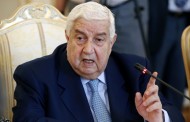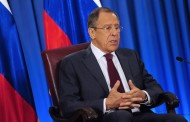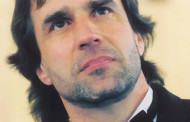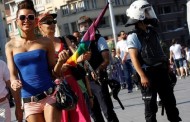Russia Day, originally conceived as the nation’s main official holiday to be marked on June 12, is perceived as a real occasion to celebrate by an ever greater share of Russians in the context of the overall surge of patriotism. Although the share of those who see the day as just an extra day off is still large. As for the general public’s knowledge of the history behind this holiday, which heralded the forthcoming collapse of the Soviet Union and the emergence of new Russia, it leaves much to be desired. For the younger generation the events of 25 years ago are a tale as old as time, sociologists say.
On June 12, 1990 the First Congress of People’s Deputies of the Russian Soviet Federative Socialist Republic (RSFSR) voted for a Declaration of the RSFSR State Sovereignty. The Soviet Union would stay in existence for another year. In 1990 Mikhail Gorbachev was still president of the USSR, and his chief political opponent, Boris Yeltsin, holding the post of the Russian parliament’s speaker, was the one who initiated the Declaration’s adoption.
June 12 has been a public holiday since 1992. A short while later the date was called Russian Federation State Sovereignty Declaration Day and then, Independence Day. However, the latter left the public at large wondering: “Who or what are we now independent from?” people were asking each other.
All that caused a great deal of confusion in people’s minds. On the eve of the holiday several sociological centres have held opinion polls in order to find out Russians’ attitude to July 12. The national public opinion studies centre VTSIOM has found out that only 4% of Russians know with certainty that Russia Day is marked on the day the sovereignty declaration was adopted.
However, the share of those who believe June 12 is a real holiday has been growing steadily. The public opinion fund FOM says there are 45% of such respondents, in contrast to 15% in 2005 and 29% a year ago. In the meantime, the percentage of those for whom it is just an extra day off has been down to 42% from 73% in 2005 and 60% a year ago.
FOM chief Aleksandr Oslon attributes this to the return of Crimea and Sevastopol to Russia’s fold.
“Our society today is in a different condition. It is one of the symptoms, one of the manifestation of the changes that happened in March 2014. Crimea in March 2014 was the turning point,” he said.
“From that moment on all events inside the country and abroad, the crisis in Ukraine included, have begun to be looked at from a different angle,” Oslon said to explain the changes in the state of the public mind. “We have always considered ourselves as losers invariably falling behind.” To a certain extent that feeling created a sort of inferiority complex, Oslon said, adding that March 2014 brought about a drastic change.
That the people by and large are curious about the holiday’s origin is easy to explain, the head of the Comprehensive Social Studies Centre at the Russian Academy of Sciences’ Sociology Institute, Vladimir Petukhov, told TASS.
“Firstly, since 1992 both the holiday’s name and the political interpretation of events that brought it into being have changed several times. First, the date was perceived as a triumph of democracy, then the notion ‘independence’ was brought to the fore. For young people those are events are a tale as old as time. Many are ignorant of the country’s latest history,” he said.
Petukhov believes that this holiday has lost its historical connotation and identity. As a matter of fact it has become a holiday honoring Russian statehood regardless of its historical context.
“These days its popularity has been growing with the surge of patriotic sentiment and Russians’ self-esteem. It has turned into a holiday of national pride.”





Recent Comments
Heiner in: Wohnungen aus der Nazizeit für die Bürger aus Deutschland
Guten Abend Herr Krüger, dieser Text ist nur eine Bemerkung zu der Sac ...
Equipe rédactionnelle in: Télévision ukrainienne soutient le massacre des Russes
Normal, Roger, c'est un troll de service. Ce n'est pas la première foi ...
CHRIS in: Rencontre avec Svetlana Kissileva : la guerre aux portes de l'Europe
Tiens c'est curieux à la virgule près votre article reprend une partie ...
RP-bezcenzury in: Manipulacja SBU
1000 razy powtarzane kłamstwo staje się prawdą - Goebbels ...
iacobus in: NWP: Nie można pozwolić, by neobanderowcy, manifestowali kult zbrodniarzy na warszawskich ulicach
Jesteście niepoważni. Piszecie "cierpliwość Polaków dobiega końca", a ...